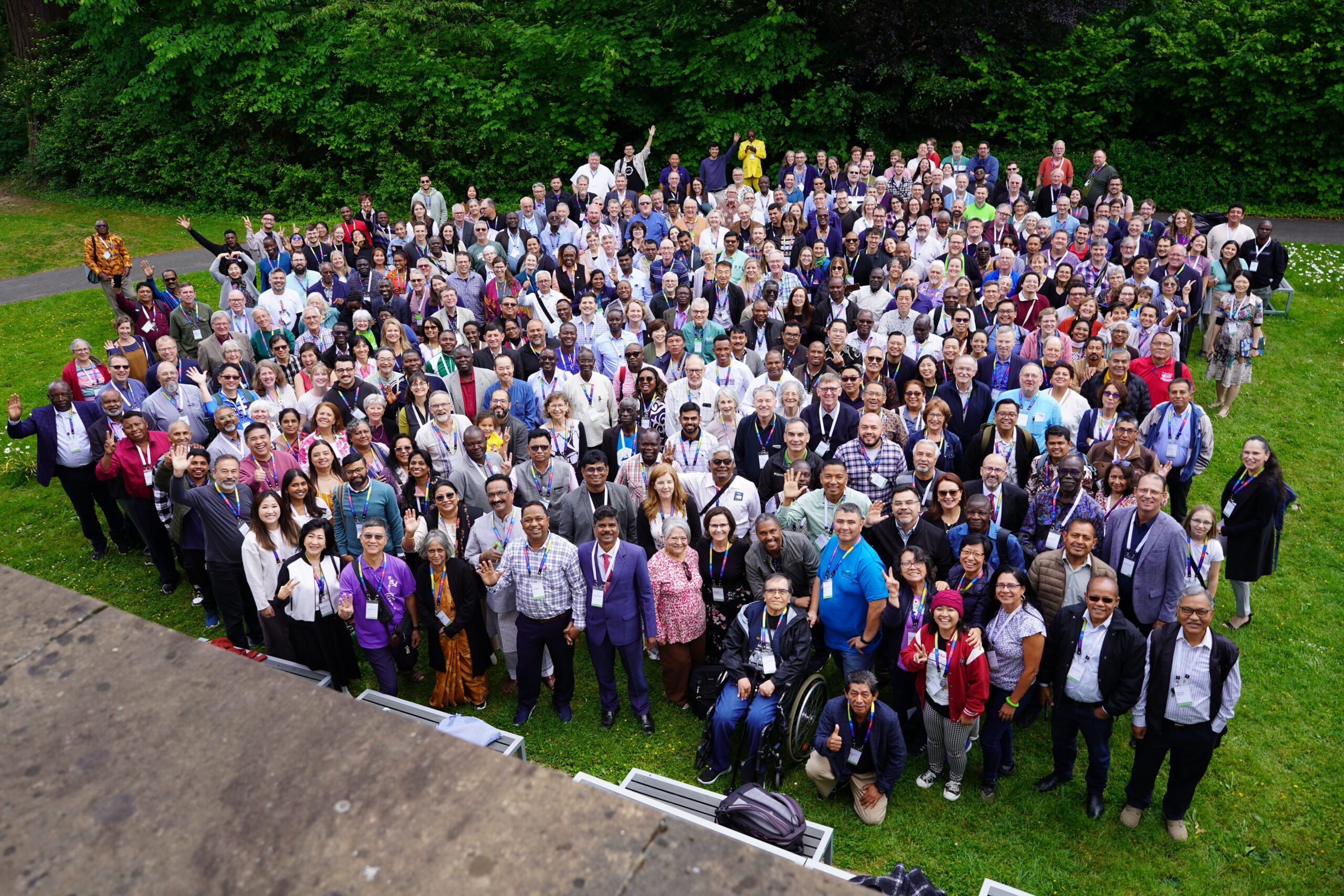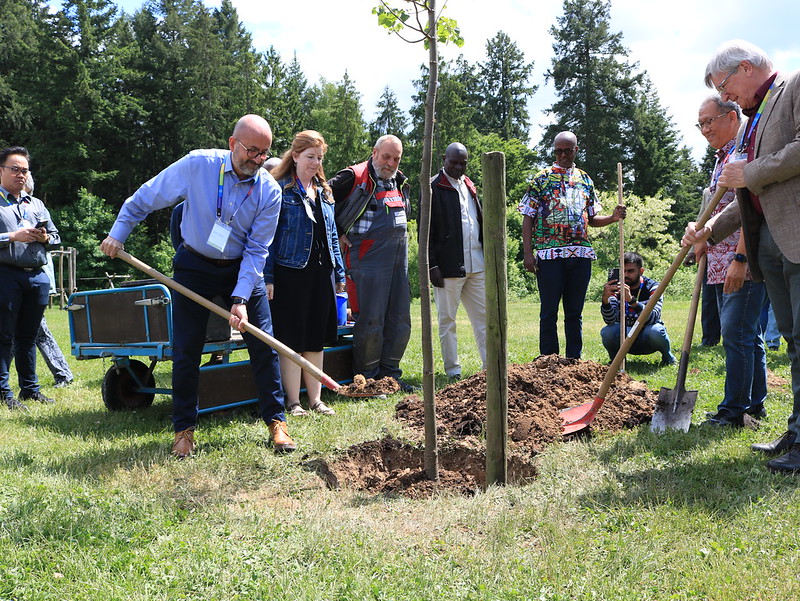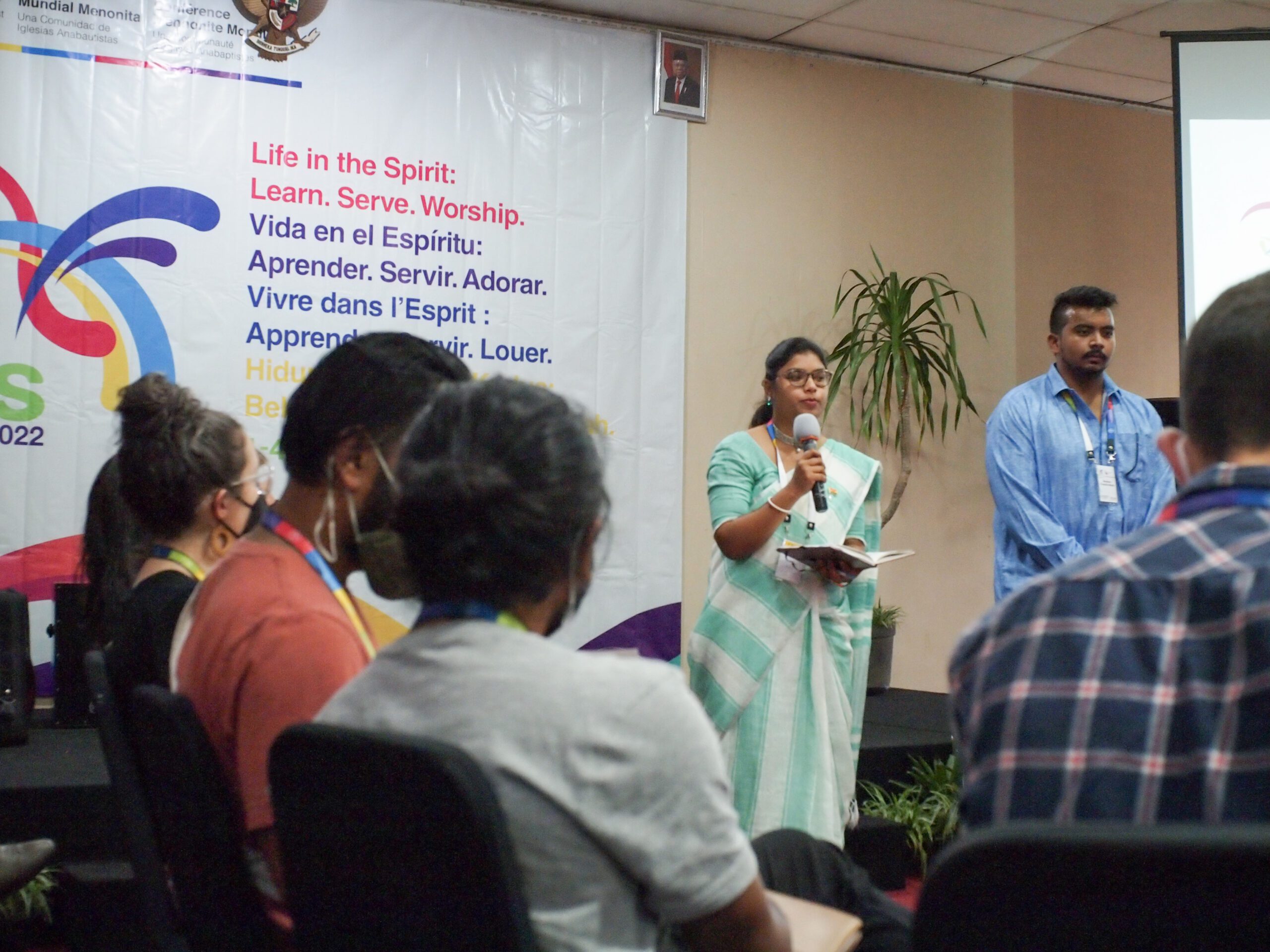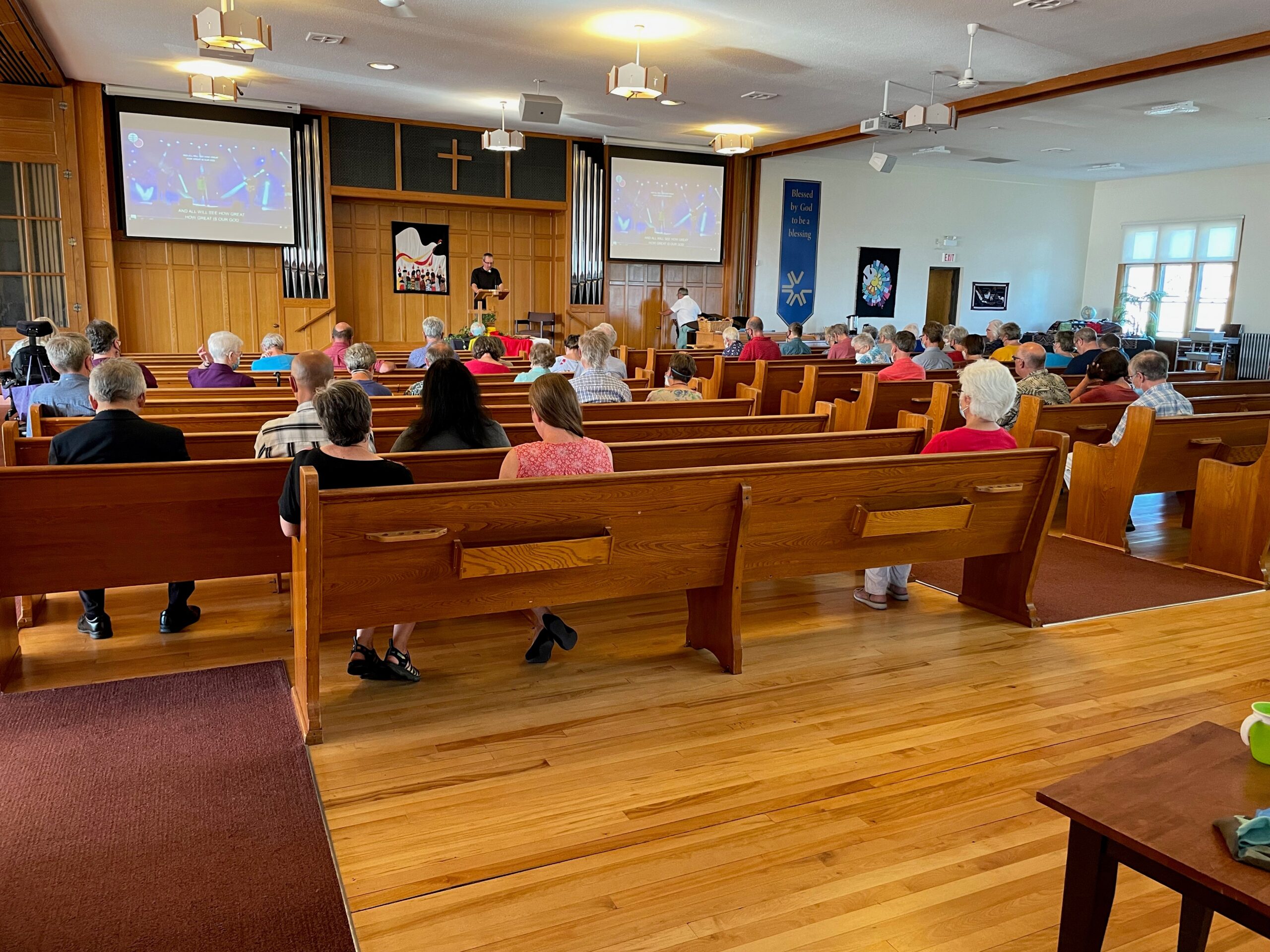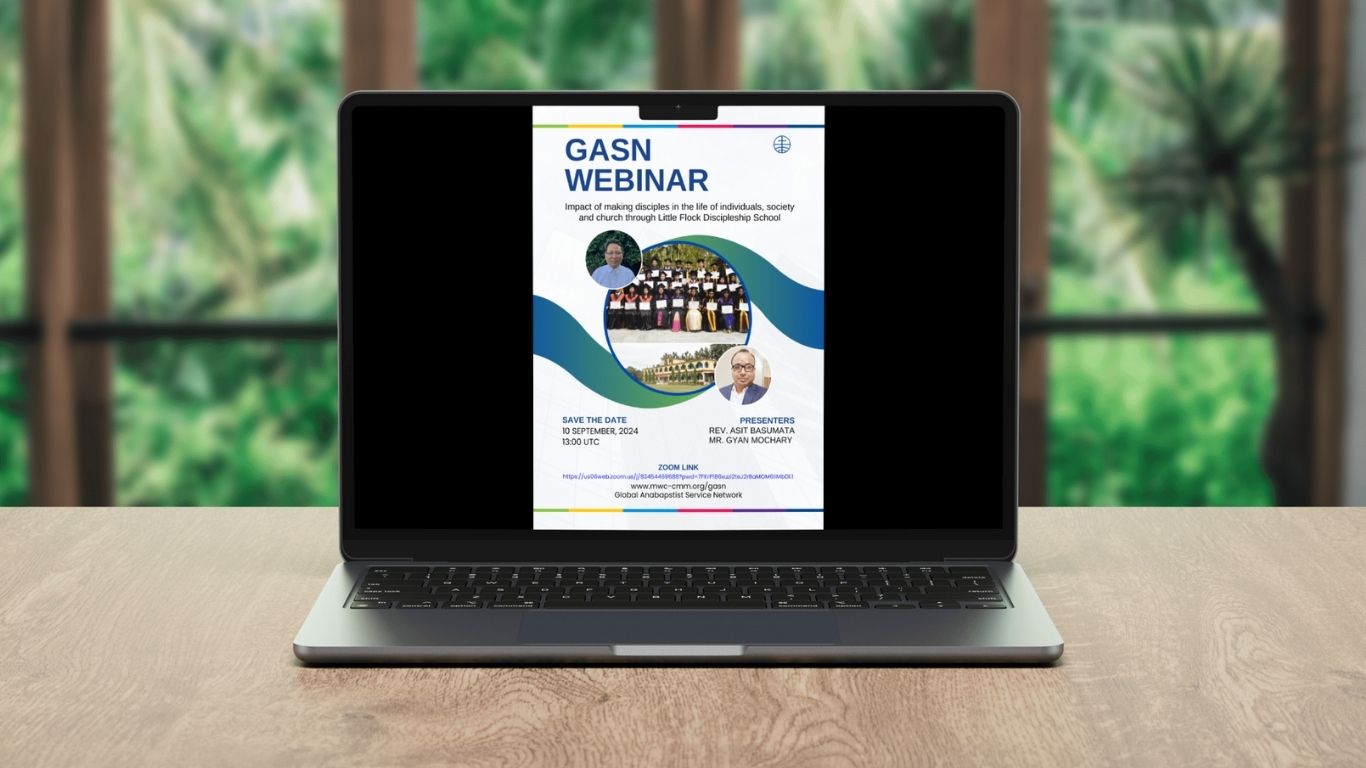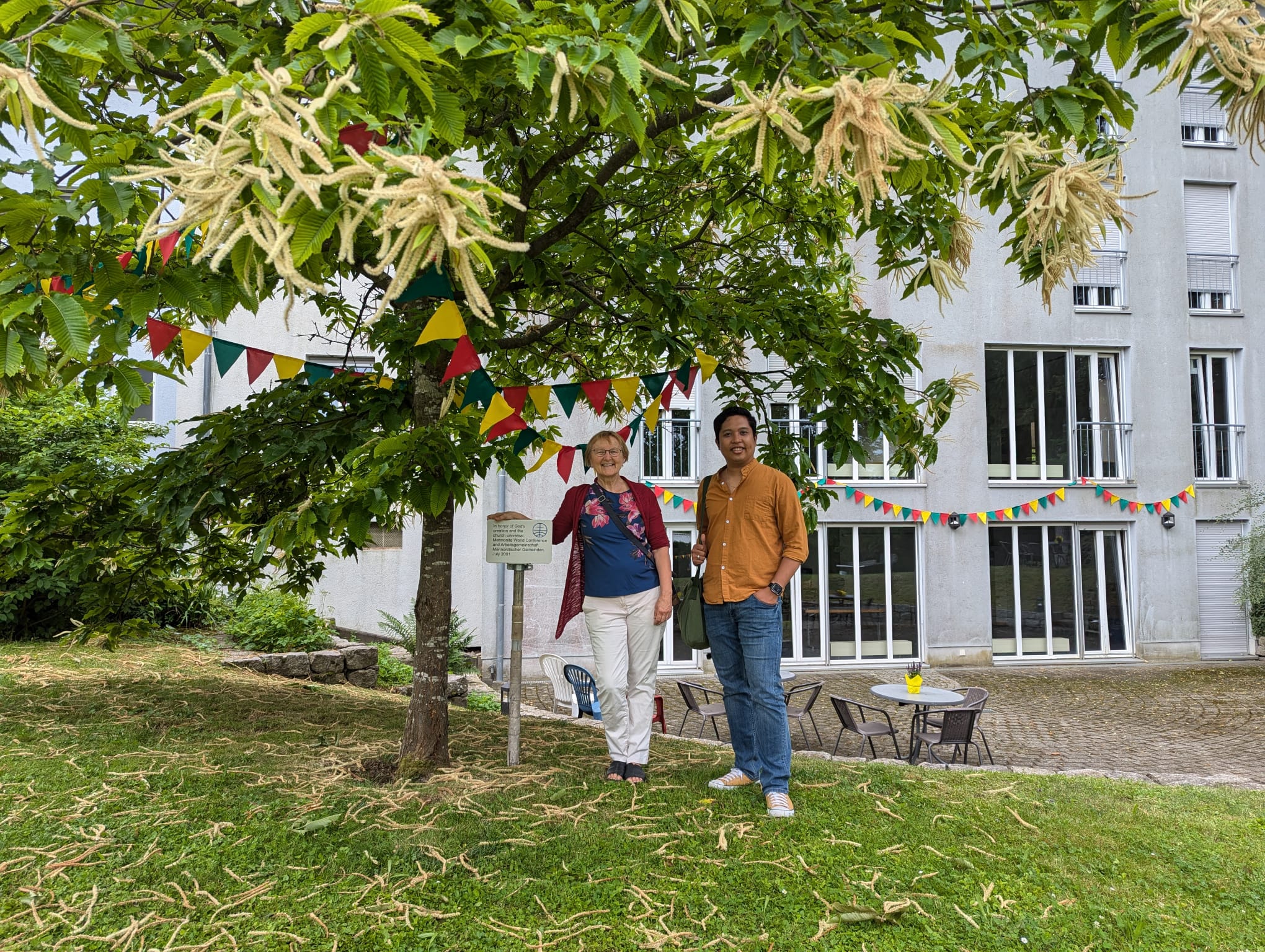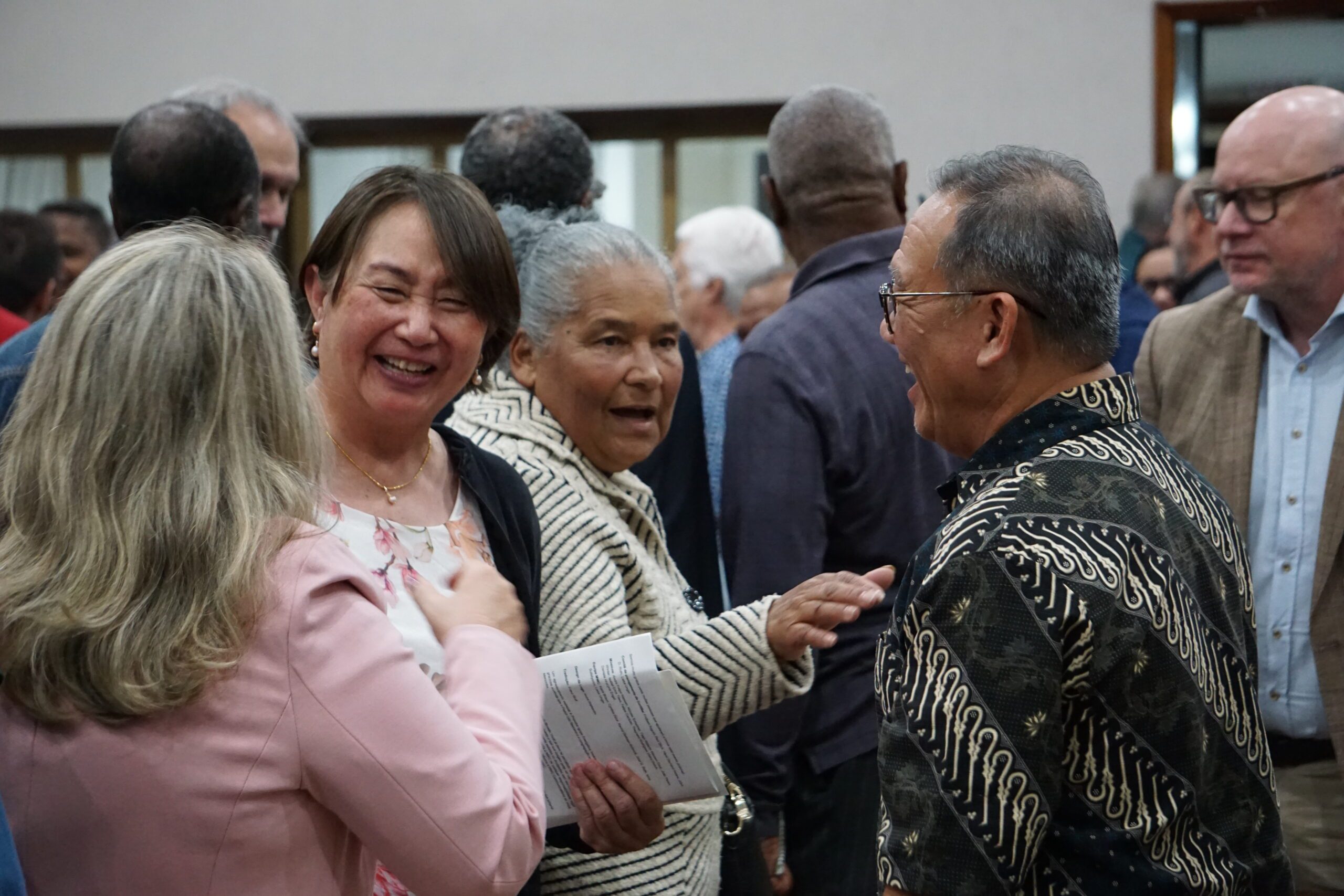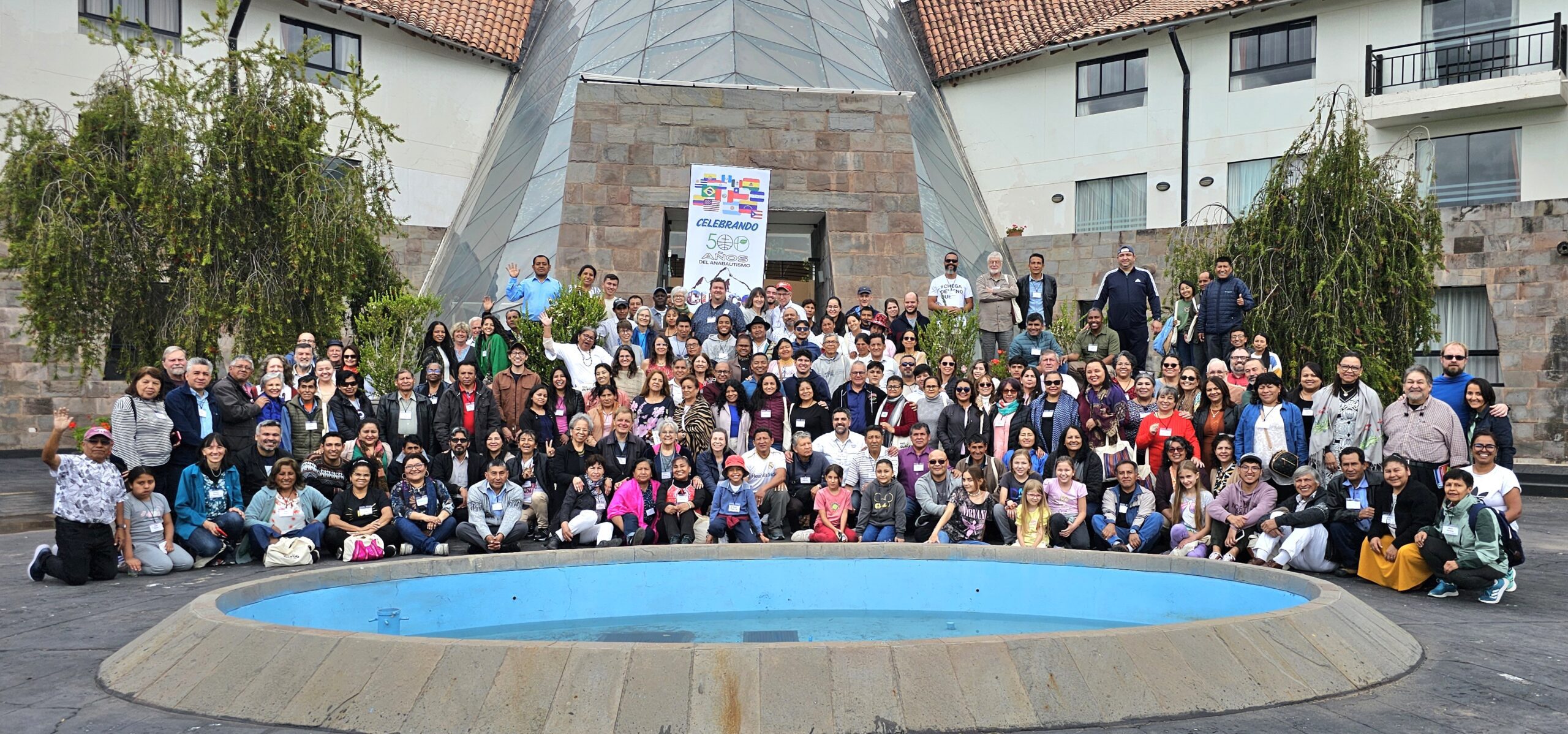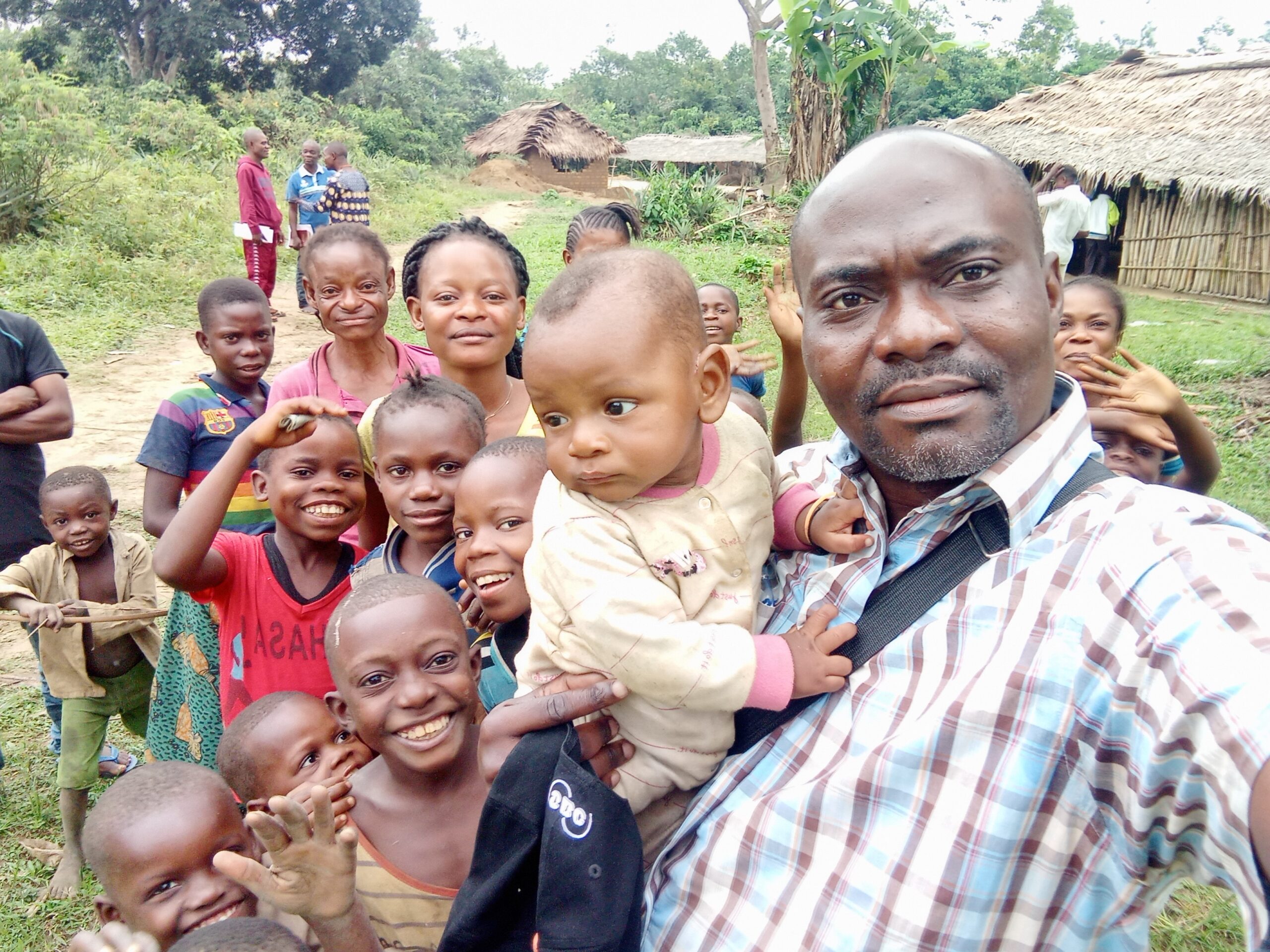-
A role model for others
Glory Michael Sunday is from Akwa Ibom state in Nigeria where she attends Ikot Ekang Itam Assembly, a congregation of MWC member church Mennonite Church Nigeria. She’s currently nearing the end of her term with YAMEN (Young Anabaptist Mennonite Exchange Network) serving as a teacher at P4T Nursery and Primary School in Kyangwali Refugee Camp
-
From celebration to commemoration
Mennonite World Conference (MWC) concludes its triennial General Council (GC) meeting 26-28 May 2025 in Schwäbisch-Gmünd, Germany, with a clear framework for the future.
-
A reminder of our presence in the world
“We are stewards of creation; this tree reminds us that every step we take as Commissions, as Officers, and Networks has repercussions for creation,” says Henk Stenvers, MWC president. It also symbolizes our presence in the world, he said. The Executive Committee, Commissions, staff and Creation Care Task Force planted a linden tree (tilia cordata)
-
Bigger responsibilities in the global church
At the meetings in May 2025, General Council members will vote on a proposal for every Mennonite World Conference full member to have one Young AnaBaptist (YAB) delegate in the General Council starting 2028.
-
Powering the spinning wheel
Join in prayer for the global family “Prayer has been our spinning wheel. Thanks to the global church for the resilience in your prayers. It is encouraging to know that someone somewhere in the globe is reporting your issues to God,” says Okoth Simon Onyango, Mennonite Church Uganda, bishop. The members of Mennonite World Conference
-
A celebration of ecumenism, joy, confession and hope
We invite everyone to worship with us! The worship service marking the culmination of Mennonite World Conference’s 500th anniversary event in Zurich, Switzerland, will be livestreamed. The event takes place Thursday, 29 May 2025, at 15:00 UTC. (Please note an earlier version gave the incorrect time. 15:00 UTC is when the service begins; tune in
-
Leaving a legacy
Network webinars inspire, teach and connect Anabaptists are following Jesus in the world, building peace. This is often accomplished through organizations developed by churches to work alongside. The Networks* of Mennonite World Conference provide a home for members of these organizations to learn from one other about what it means to be Anabaptist-related institutions; to
-
In memoriam: Pope Francis (1936-2025)
Photo: Ashwin Vaswani/Unsplash Mennonite World Conference joins Catholics and other faith communities across the world in mourning the loss of Pope Francis, who died on 21 April 2025, at the age of 88. He had been recovering at his residence Domus Sanctae Marthae after hospitalization for bilateral pneumonia. “With gratitude, we remember the life of
-
General Council leaves a mark
At a prayer meeting, a Mennonite World Conference staff member prayed that the presence of Anabaptists gathered in Germany for General Council meetings would leave a mark. Although the prayer was to leave behind the fragrance of Christ, there will also be a living memento of Mennonite World Conference’s visit. The Executive Committee, Commissions, Creation
-
Celebrate 100 years of unity
A centenary only comes around every 100 years! Mennonite World Conference is celebrating their 100th anniversary with a worship service and reception in Schwäbish Gmünd, Germany, 25 May 2025. “We hope Anabaptists will be able to make the journey to Schönblick from hundreds of kilometres in each direction around Europe to celebrate this momentous anniversary
-
Trails of blood, sweat and tears
Celebrate, equip, worship: 500 years of Anabaptism Churches around the world are marking the 500th anniversary of Anabaptism with lectures, hymn sings and even regional events. MWC member church Iglesia Evangélica Menonita del Perú hosted “Celebrar, equipar, adorar” in Cusco, Peru 18-22 January 2025 to mark 500 years of Anabaptism. Church members gathered for the
-
Building peace between Bantu and Batwa
Alarming situation: discrimination and violence “We understand that God doesn’t discriminate,” says Nathan Mudiji, “but that before God, everyone must acknowledge their sin and do their best to repair the relationship broken because of sin.” In the DRC, the Batwa (an indigenous people mainly settled in the Equateur and Mai-Ndombe provinces), suffer discrimination and inhumane

